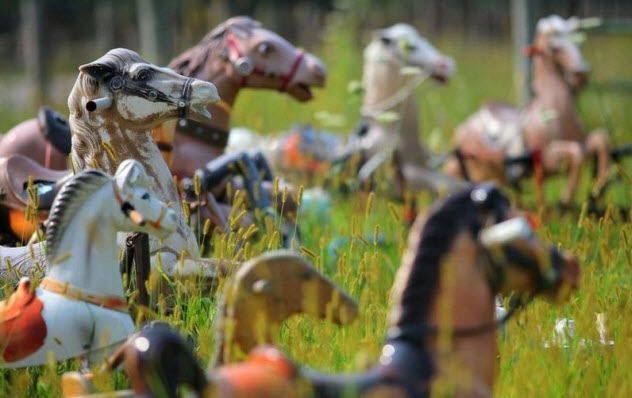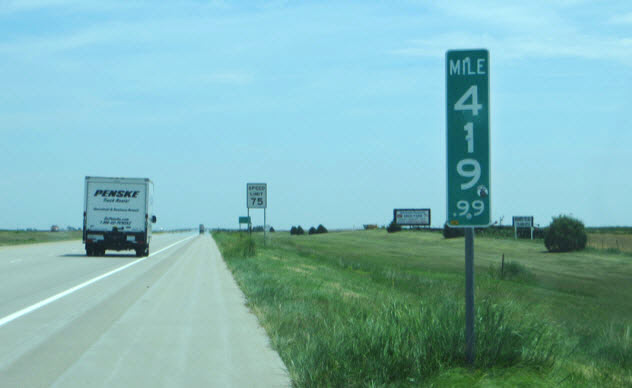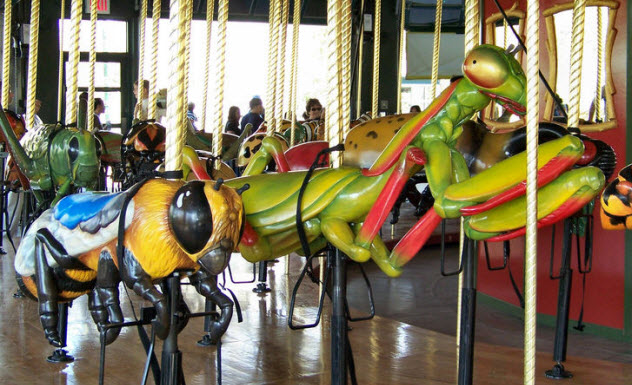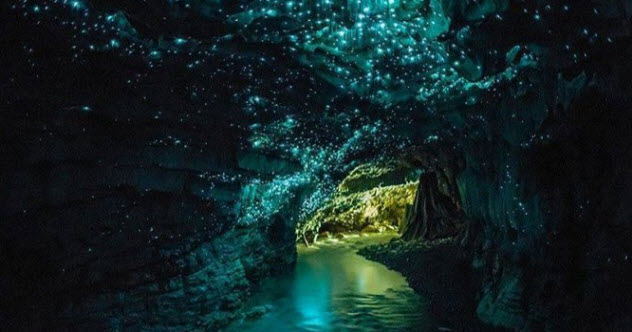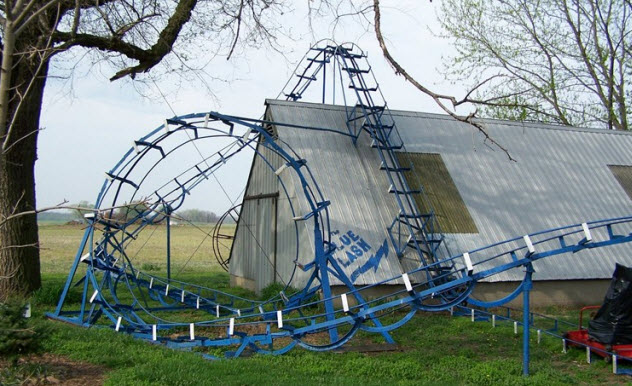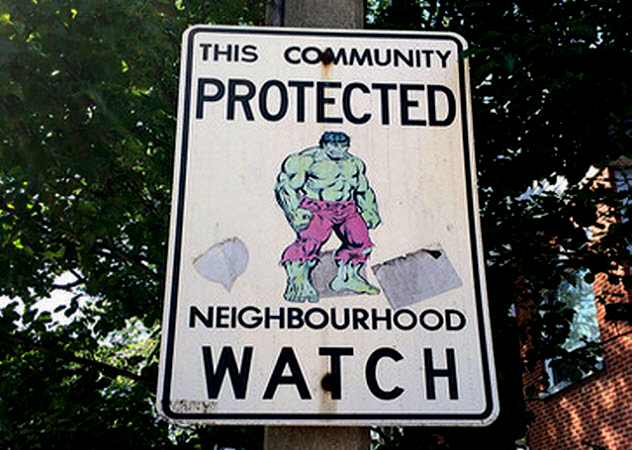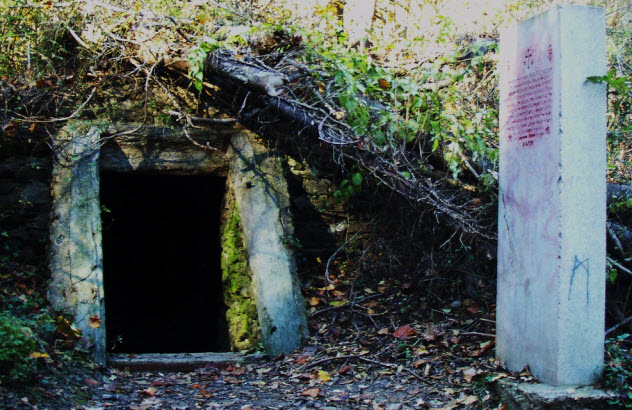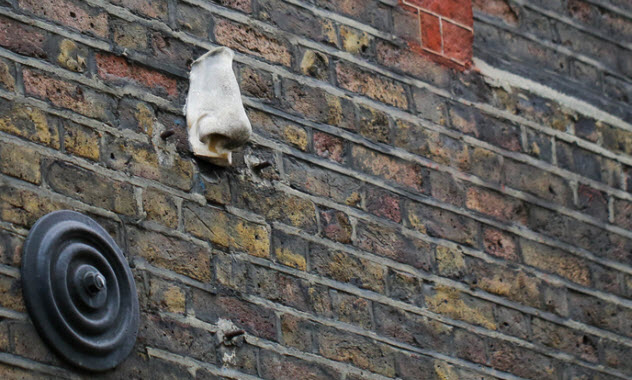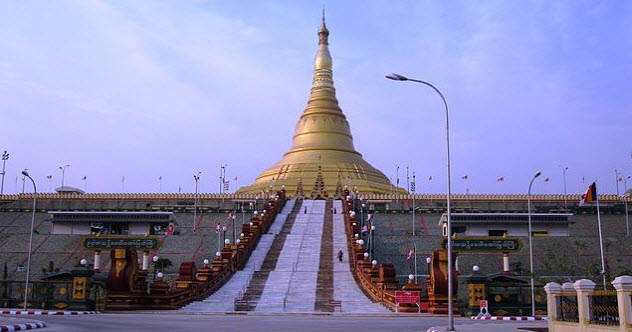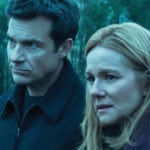We would like to point out that noted extremely smart person Elon Musk has publicly stated his belief that the likelihood that we are not living in a simulated reality is one in billions. We would also like to point out that we appear to have been slightly ahead of the curve on this. Mr. Musk, on the off chance that you are reading this, consider this series an ongoing catalog of evidence to support your assertion.
10 Ponyhenge
On a small parcel of farmland in Lincoln, Nebraska, you can find a herd of horses, currently numbering about 30. The difference between this and any number of other horse gatherings you might find in the area will be immediately obvious: They’re old-style rocking horses—some wood, some plastic, all silently standing in a circle facing each other. Their number has slowly grown over the last several years, and nobody in town has the same story about how the first one got there. Some say it began as part of a Halloween display. One man remembers a couple of kids with a lemonade stand bringing the first two. Then more kept appearing seemingly every month, placed among their creepy brethren by unknown visitors. Rather than petering out over the years, the proliferation of horses seems to be increasing and their positions in the field change often, also by unknown means. Local residents love the display, unofficially known as “Ponyhenge,” and profess to not want to know where the horses are coming from. With their number doubling over the course of a recent year, however, some are starting to kick around the idea of culling the herd. If you ask us, messing with those horses in any way sounds like a terrible idea.
9 The Clown Motel
Located in the middle of a giant desert off a lonely highway, the tiny former mining town of Tonopah, Nevada, is pretty much exactly where you would expect to find a creepy motel. It’s the sort of motel you’d be reluctant to stay in for fear of a terminal case of the willies, at the very least. But Tonopah’s aptly named Clown Motel is the sort of creepy place that would make a certain type of person—the type who can’t even look at the picture accompanying this entry—floor the gas pedal and speed off screaming into the night. Yes, this sleepy town of 2,500 is home to the world’s only (we hope) Clown Motel, and it’s not just a name. Each room is clown-themed, featuring clown dolls and portraits of famous clowns. But that’s not all—the lobby is filled with clown dolls, too. Hundreds and hundreds of them. As if this isn’t enough, Tonopah is home to an old prospectors’ cemetery that was established in 1901. Its residents include a bunch of townspeople who died in a mysterious, turn-of-the-century plague and 14 miners who died in a horrific mine fire. With its rusted metal fence and dilapidated old graves, it looks like a nightmare come to life with the history to back it up. And where is the cemetery located? Why, it’s right next to the Clown Motel.
8 419.99 Mile Marker
If you’ve ever seen a highway mile marker, and we’re pretty sure you have, you’ll notice immediately something wrong with the one above. Situated on Interstate 70 next to the tiny Colorado burg of Stratton, it appears to be missing the other 99 signs marking off the hundredths of this particular mile. But it’s not a mistake or part of an unreasonably extensive highway marking program. The marijuana-related signifier “420” is particularly dear to residents of this state, and Colorado Department of Transportation (CDOT) workers replaced the Mile 420 marker with this one after getting tired of replacing it. Unfortunately for the crews who do maintenance on I-70, there are only two other highways in Colorado that run long enough to have this problem—and the other two simply forgo the Mile 420 marker altogether. Why this novel solution was chosen for I-70 is unclear, but it has worked. The new marker has remained untouched. Apparently, nobody wants to be perpetually stuck 0.01 miles away from party time. Strangely enough, this is not the first time this trick has been employed on the very same highway. CDOT officials were forced to install a Mile 68.5 marker after repeated theft of . . . well, you get the idea. In answer to your question, no, Colorado is not composed entirely of college students, but it is getting close.
7 The Bug Carousel
The Bronx Zoo is 265 acres of nature plunked down in the heart of New York City. Over 100 years old, it is a Big Apple institution. Its Butterfly Garden draws over 300,000 visitors per season, but its companion carousel may make some of those visitors run shrieking all the way to Manhattan. Yes, the carousel features 64 hand-carved, frighteningly large likenesses of insects with a bevy of different species that are all impressively (or disturbingly, depending on your point of view) detailed. The 15-meter (50 ft) carousel has serviced hundreds of thousands of riders since opening in 2005 and is billed as the world’s first and only carousel with a lineup entirely of insects, which we are not sure needed to be clarified. What kind of carousel music must be featured on such a ride? We’re glad you asked. Its sound track is composed of insect sounds, courtesy of the Wildlife Conservation Society. If the carousel’s space ever becomes needed for a different exhibit, we suggest moving it to Tonopah, Nevada. For some reason, we feel like it would feel right at home there.
6 Waitomo Glowworm Caves
Located outside the Waitomo Township on New Zealand’s Northern Island is an extensive series of underground caves that have become a local attraction. They were discovered near the turn of the 19th century by a Maori chief and a British surveyor who ventured into the caves by candlelight to map them out—only to quickly realize that the candles weren’t necessary. The caves are home to an enormous population of Arachnocampa luminosa, which is a species of glowworm native to New Zealand and not a spell that you remember from a Harry Potter novel. As the name implies, the worms are bioluminescent. Hundreds of thousands of them populate the Waitomo caves’ grotto, giving off an otherworldly glow and illuminating the naturally carved limestone formations among the caverns’ many twists and turns. While visitors could be forgiven for thinking they’ve stumbled upon a portal to outer space, locals have been enjoying the attraction for over 100 years. The caves are currently maintained by the government, with the first guided tours given in 1889 by the same Maori chief who helped to discover them.
5 The Blue Flash
The small town of Bruceville, Indiana, is right in the heart of flyover country, the type of town where there’s very little to do and not much worth stopping for. One day in the early 2000s, resident John Ivers got it into his head that the town really needed a roller coaster. So with a handful of tools, a bunch of scrap metal, and absolutely no experience, he decided to build one right in his backyard. Despite the ride lasting only 24 seconds, the Blue Flash, as it came to be called, has many of the features prized by coaster enthusiasts: an initial hill followed by a steep drop (up and over the work shed John used to build it), plenty of twists and curves, and even a loop. Why did he do it? John explained, “You know, there are a lot of good engineers who design roller coasters, big coasters, but not in their backyard, you know.” Fair enough. Beginning the project with his grandchildren in mind, John apparently finished work on the coaster in a white heat before realizing that his grandchildren were still toddlers at the time and would fall right out of the cars while navigating the loop. Deciding that this would not do, he built a second coaster—Blue Too—a kinder, gentler coaster that’s just right for small kids. Visitors from around the world have come to ride the Flash, which frankly seems like a lot of trouble for a 24-second ride in the middle of nowhere.
4 Toronto’s Neighborhood Watch Signs
One day, Canadian artist Andrew Lamb (not his real name) decided that his Toronto suburb’s neighborhood watch signs were lacking in aesthetic value. A comic book fan, Lamb used a laser printer to produce a comic book splash page featuring a bunch of superheroes. He affixed it to one of the signs, stepped back, and saw that it was good. But Lamb was far from satisfied. Despite his actions being, well, illegal (hence the use of a pseudonym), Lamb has gone on to creatively deface, by his count, a total of 68 neighborhood watch signs throughout Toronto with only a handful of duplicates. He does not try to hide his activities and says that only a couple of residents have offered complaints of any kind. Most offer positive feedback while he works. He also says that he has been contacted with requests for modification of certain signs and suggestions for new characters to use. Although potential criminals may not necessarily be deterred by the suggestion that the Incredible Hulk or RoboCop is watching over their target neighborhoods, officials don’t seem terribly concerned. Lamb began his project after noticing that the lettering on the signs faded in the sun but the black border did not, leaving the perfect canvas for his outsider art. His personal favorites: Ellen Ripley from the Alien film series and bumbling detective Frank Drebin from The Naked Gun.
3 The Cave Of Kelpius
In the middle of Philadelphia along the Wissahickon Creek on Hermit Lane lies a secret cave that is stumbled upon by few. Although this is not the beginning of our modern fantasy novel, it may as well be. The plaque standing by the cave notes that it was built by “The Original Rosicrucian” Johannes Kelpius, a German mystic who arrived in Philadelphia shortly after its founding. Claiming to draw on the wisdom of the ancient Egyptians, the Rosicrucians were a not-so-secret society that began in 17th-century Germany. Kelpius and his followers, known as the “Hermits of Wissahickon,” lived in seclusion in this area, engaging in deep meditation and assisting city residents when called upon. This was going fine until the group’s apparent transformation into what must be one of the original doomsday cults. Based on his interpretation of the biblical book of Revelation, Kelpius announced that he had determined that the world would come to an end in 1694. When the target date came and went with no global annihilation, the date was revised to 1700. This went on until 1708 when Kelpius died and his remaining followers disbanded. All that is left of their settlement is this dark, dry cave which was used for intensive meditation and awaiting the end of the world. Cyclists and hikers who find themselves far off the beaten path can stumble across this eerie, near-forgotten relic of Philadelphia’s history.
2 The Seven Noses Of Soho
Strolling through the streets of London’s Soho neighborhood, one might notice that several of the buildings have some rather unique features. Neither architectural nor decorative features, no, we actually mean human features. Noses, to be specific. There are seven of them cast in metal and affixed to random buildings throughout the area. The honkers are the work of artist Rick Buckley, who in 1996 created the seven sculptures from a cast of his own proboscis. Somehow, the legend spread that anyone who is able to find all seven will gain infinite wealth, which sounds like a video game side quest if we have ever heard of one. While some of the noses are as plain as the nose on the side of a building (sorry, we couldn’t resist), others are quite difficult to find, which is to be expected if infinite wealth is the prize. Local tour groups have organized walking tours of the seven noses, a combination of words we never expect to see again, let alone type. So perhaps the infinite wealth deal was only good for the first person to discover all seven. We can think of a few good candidates, but none of the Kardashians are talking.
1 The World’s Biggest Ghost Town
The historically politically tumultuous country of Myanmar (aka Burma) has one of the largest capital cities in the world. Unveiled to the world in 2005, Naypyidaw is six times the size of New York City, and estimates of its construction cost run upward of $4 billion. The city has all of the most modern amenities—malls, hotels, brand-new restaurants with free Wi-Fi, and a 20-lane superhighway running right through the middle. The only thing it doesn’t have is residents. Although the military regime that undertook the city’s construction was ousted from power in 2011, the current government insists that its capital city is a bustling metropolis of over one million residents, an assertion whose absurdity is apparent simply by looking around. Road maintenance and construction workers are often the only signs of life on the city’s wide, clean, empty streets (yes, construction is still ongoing), and traffic is such that the BBC television show Top Gear was able to stage a drag race down its main road during its alleged rush hour. While the motivation for moving the country’s capital to the middle of nowhere where no residents will ever venture remains unclear, rumors are that the country’s officials were wary of an amphibious US invasion because the old capital of Rangoon was close to the sea. If this seems a little paranoid, it may help to know that Myanmar is one of the only countries on Earth that is friendly with North Korea.
